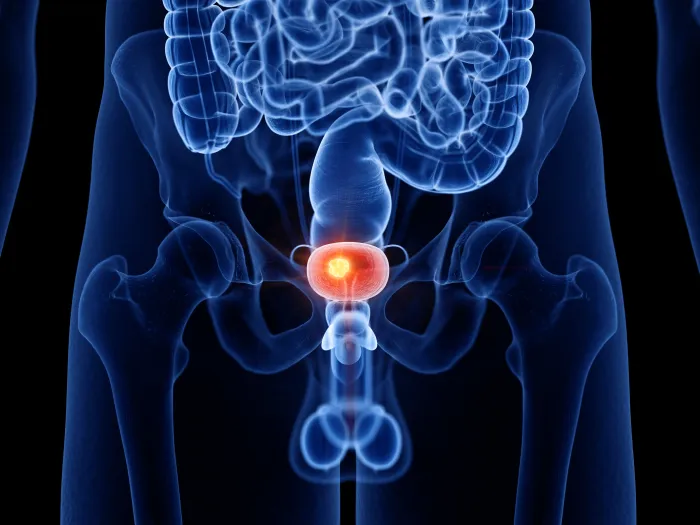Urinary Tract Cancer Symptoms Overview
Discover key symptoms, causes, and risk factors of urinary tract cancer. Learn how to spot early warning signs and when to seek medical help for timely diagnosis.

Written by Dr. J T Hema Pratima
Reviewed by Dr. J T Hema Pratima MBBS, Fellowship in Diabetes Mellitus
Last updated on 13th Jan, 2026

Introduction
Urinary tract cancer is a serious condition that affects the organs responsible for producing, storing, and eliminating urine from the body. This includes the kidneys, bladder, ureters (tubes connecting the kidneys to the bladder), and urethra (the tube that carries urine out of the body). Recognising the symptoms early can lead to timely diagnosis and better treatment outcomes.
If you or a loved one is experiencing any unusual urinary symptoms, it’s important to consult a doctor. You can easily book a consultation or schedule a test through Apollo 24|7 for expert guidance.
Common Symptoms of Urinary Tract Cancer
The symptoms of urinary tract cancer can vary depending on which part of the urinary system is affected. However, some common signs include:
1. Blood in Urine (Hematuria)
One of the most noticeable symptoms is blood in the urine, which may appear pink, red, or brown.
Sometimes, the blood is not visible but detected in a urine test.
2. Frequent or Painful Urination
Feeling the need to urinate more often than usual, especially at night.
Pain or burning sensation while passing urine.
3. Difficulty Urinating
Weak urine stream or trouble starting urination.
Feeling like the bladder isn’t fully empty after urinating.
4. Lower Back or Pelvic Pain
Persistent pain in the lower back, sides, or pelvic area.
This may indicate kidney or bladder involvement.
5. Unexplained Weight Loss & Fatigue
Sudden weight loss without changes in diet or exercise.
Constant tiredness, even after adequate rest.
6. Swelling in the Legs
If cancer affects the lymph nodes, it may cause swelling in the legs.
If you experience any of these symptoms persistently, it’s important to seek medical advice. Early detection can make a significant difference in treatment success.
What Causes Urinary Tract Cancer?
The exact cause of urinary tract cancer is not always clear, but certain risk factors increase the likelihood of developing it:
Smoking: Tobacco use is a major risk factor for bladder and kidney cancer.
Chemical Exposure: Working with dyes, rubber, or certain industrial chemicals can increase risk.
Chronic Bladder Infections: Repeated urinary infections or bladder stones may contribute.
Family History: A genetic predisposition can play a role.
Age & Gender: More common in older adults, and men are at higher risk than women.
Certain Medications: Long-term use of some pain relievers may increase kidney cancer risk.
Get Your Symptoms Checked By An Oncologist
How Does Urinary Tract Cancer Affect Health?
If left untreated, urinary tract cancer can spread to other organs, making treatment more difficult. Early-stage cancers are often treatable, but advanced cases may require extensive therapy, including surgery, chemotherapy, or radiation.
Tips for Managing and Reducing Risk
While not all cases of urinary tract cancer can be prevented, certain lifestyle changes can help lower the risk:
1. Quit Smoking
Smoking is strongly linked to bladder and kidney cancer. Quitting can significantly reduce risk.
2. Stay Hydrated
Drinking plenty of water helps flush out toxins from the urinary system.
3. Eat a Healthy Diet
Include fruits, vegetables, and whole grains.
Limit processed foods and excessive red meat.
4. Avoid Harmful Chemicals
If working with industrial chemicals, follow safety guidelines.
5. Regular Check-ups
If you have a family history or other risk factors, regular screenings can help detect issues early.
When to See a Doctor?
If you notice any persistent urinary symptoms, especially blood in urine, frequent infections, or unexplained pain, consult a doctor immediately. Early diagnosis improves treatment success rates.
You can book a consultation or schedule a test through Apollo 24|7 for expert evaluation and care.
Conclusion
Urinary tract cancer is a serious but manageable condition when detected early. Knowing the symptoms, understanding risk factors, and adopting a healthy lifestyle can make a big difference. If you have concerns, don’t hesitate to seek medical advice—your health is worth it!
Get Your Symptoms Checked By An Oncologist
Get Your Symptoms Checked By An Oncologist

Dr. Amit Choraria
Surgical Oncologist
18 Years • MBBS, MS (Surgery) Fellow, Surgical Oncology, Tata Medical Center (FSO) Fellow, European Board of Surgery (Surgical Oncology) (FEBS) Fellow, Minimal Access Surgery (FMAS) Fellow, Indian Association of Gastrointestinal Endosurgeons (FIAGES) UICC Fellow, Royal Marsden NHS, London, UK Visiting Scholar, Plastic Reconstructive Surgery, CGMH, Taiwan Fellow, Robotic Surgical Oncology, Vattikuti Foundation, USA
Kolkata
Apollo Multispeciality Hospitals , Kolkata, Kolkata
(75+ Patients)

Dr. Prosenjit Das
Surgical Oncologist
16 Years • MBBS, MS (General Surgery), MCh (Surgical Oncology), MRCS
Kolkata
Apollo Hospitals, Narendrapur, Kolkata, Kolkata

Dr Prasanna Rammohan
Oncologist
18 Years • MBBS,MD,DM(Oncology),ECMO,FCPM
Tiruchirappalli
Apollo Speciality Hospitals Old Palpannai, Tiruchirappalli

Dr. Sanchayan Mandal
Medical Oncologist
17 Years • MBBS, DrNB( MEDICAL ONCOLOGY), DNB (RADIOTHERAPY),ECMO. PDCR. ASCO
Kolkata
MCR SUPER SPECIALITY POLY CLINIC & PATHOLOGY, Kolkata

Dr Gowshikk Rajkumar
Oncologist
10 Years • MBBS, DMRT, DNB in Radiation oncology
Bengaluru
Apollo Clinic, JP nagar, Bengaluru